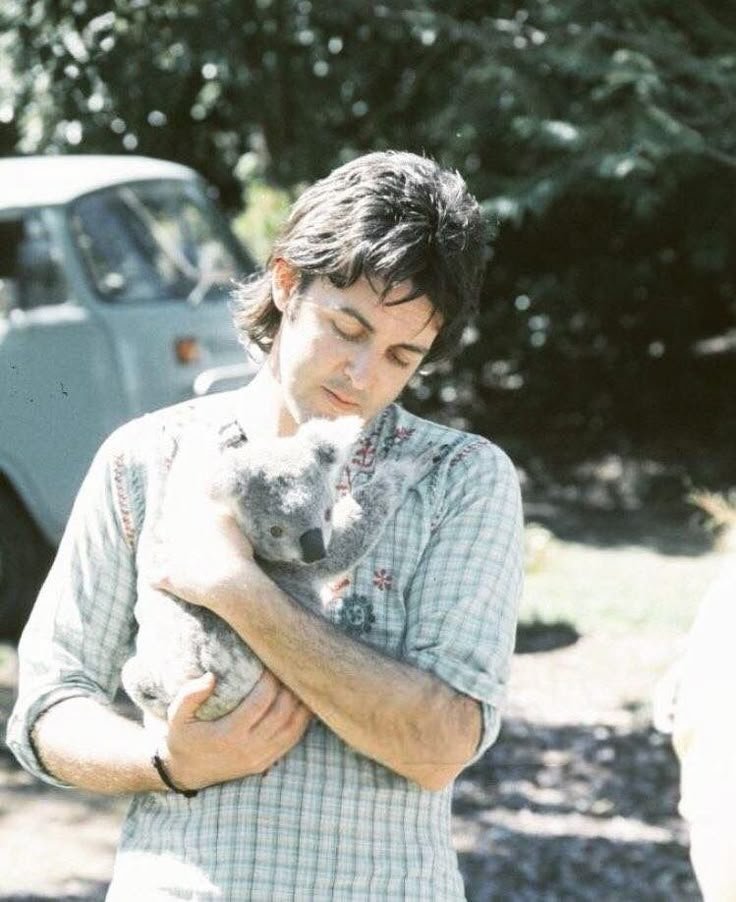“A Reflection on Compassion: Paul McCartney’s Powerful Message About Character, Animals, and the Ethical Responsibility We Share with All Living Beings”
In a world where celebrity often equates to spectacle, Paul McCartney continues to stand out—not just as a legendary musician, but as a deeply principled advocate for compassion. A striking image captures this essence perfectly: McCartney seated quietly beside a Dalmatian, under a vast sky and amid rolling hills. More than just a picturesque moment, it is anchored by a quote that resonates profoundly—“You can judge a man’s true character by the way he treats his fellow animals.” This simple sentence distills the heart of McCartney’s philosophy, one that champions empathy over ego and kindness over cruelty.
For decades, McCartney has used his global platform not merely to entertain, but to enlighten. His advocacy for animal rights is not performative nor trendy—it is personal, consistent, and deeply rooted in ethical conviction. A long-time vegetarian and vocal supporter of organizations like PETA and Meat Free Monday, McCartney has refused to separate fame from responsibility. Instead, he sees his influence as a vehicle for change, promoting awareness about the suffering of animals in factory farms, testing labs, and other industries that thrive on silence and ignorance.
This unwavering commitment is best understood not through statistics, but through moments—like the one in this image—where philosophy meets action. The quiet presence of the Dalmatian by McCartney’s side isn’t just symbolic; it’s a representation of mutual trust and respect, of a bond untainted by dominance or utility. In such scenes, McCartney reminds us that animals are not commodities or props, but sentient beings worthy of care, protection, and dignity.
The quote itself is a powerful moral compass. In a society that often judges character by success or status, McCartney redirects us to a more honest metric: how we treat the most vulnerable. Animals, voiceless and too often invisible in ethical discourse, become the litmus test of our integrity. Do we exploit, ignore, and dominate—or do we nurture, listen, and coexist? For McCartney, the answer must always be the latter.
This message extends far beyond celebrity activism. It asks each of us to examine the choices we make every day—from the meals on our plates to the products we consume. It challenges us to live in accordance with values we so often preach: kindness, fairness, and respect for life. By drawing a clear line between ethical responsibility and daily behavior, McCartney turns philosophy into practice.
Ultimately, Paul McCartney’s legacy will include far more than his contributions to music. Through quiet, consistent advocacy, he has become a voice for those who cannot speak—a reminder that greatness is not just measured in records sold or stadiums filled, but in compassion extended to the least powerful among us. In a single image and a few heartfelt words, McCartney captures a truth many forget: our true character is not revealed in moments of triumph, but in the gentleness we show to those who ask nothing of us but care.
